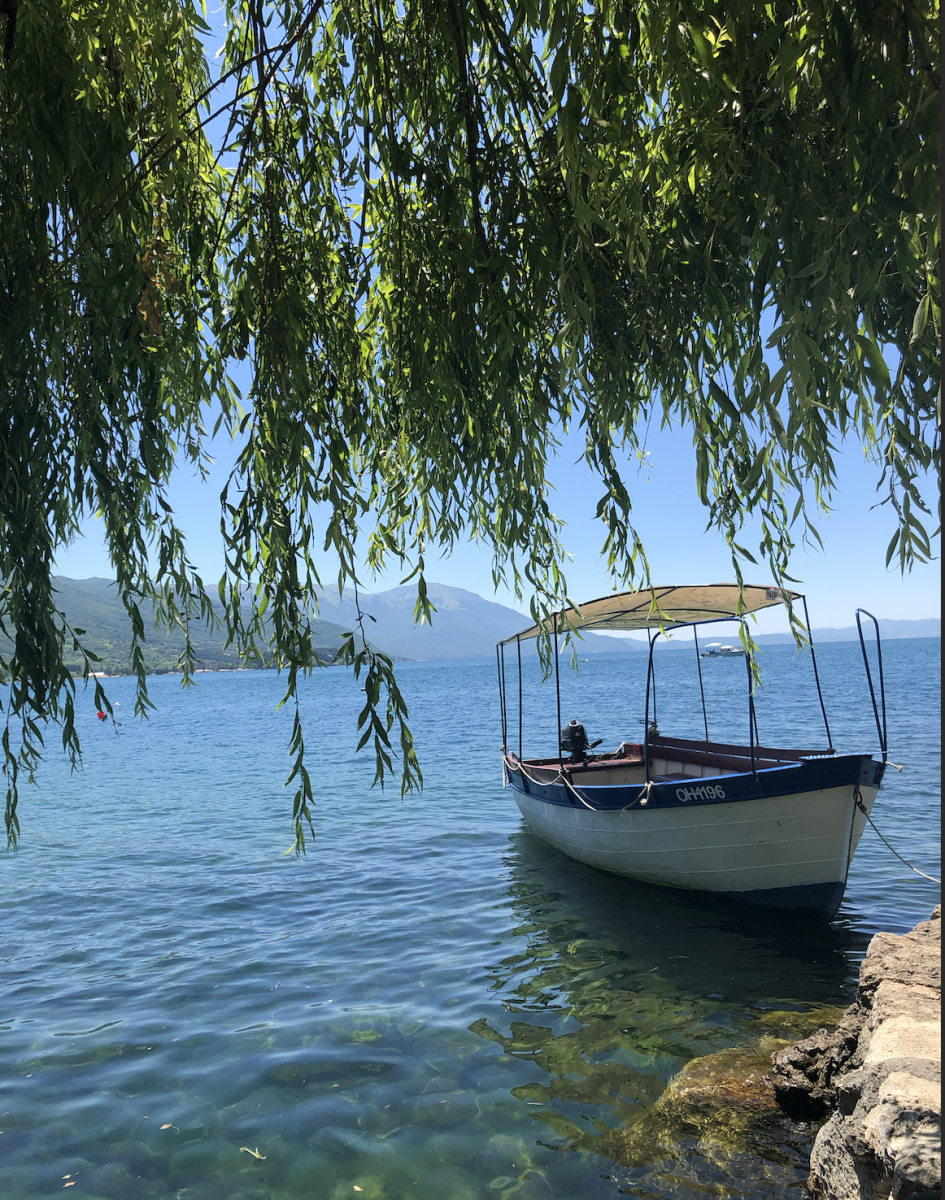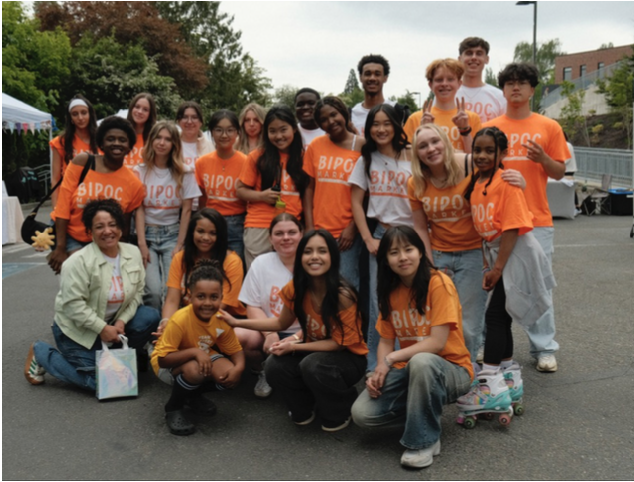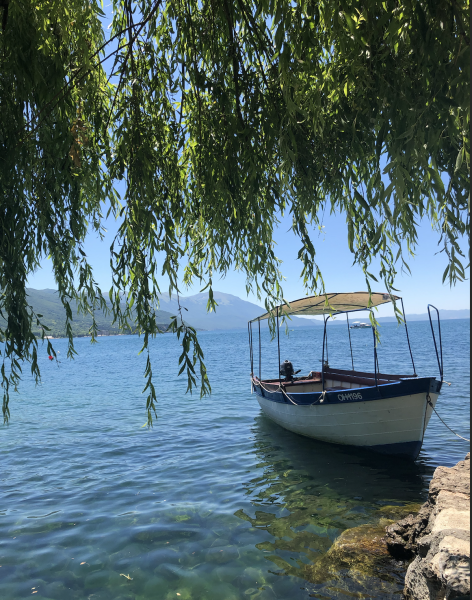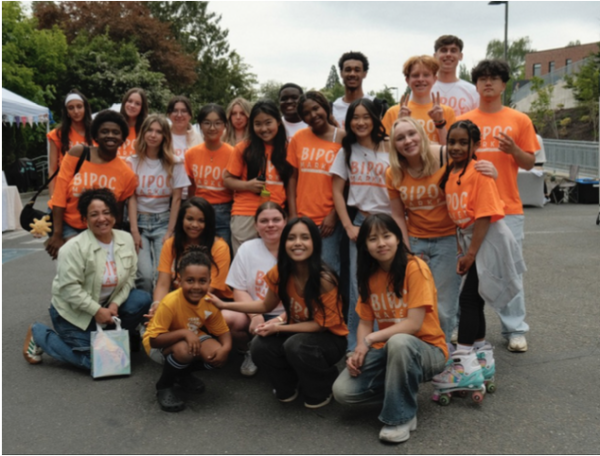Q & A with Ambassador Pamela Hyde Smith ’63
November 30, 2016
I had the privilege of speaking with Pamela Hyde Smith, an AWS graduate, current AWS board member and former ambassador. Ambassador Smith joined the US Foreign Service in 1975 and served in Romania, Yugoslavia, the Warsaw Pact countries, Indonesia, the UK and Moldova.
Q: What was your motivation in joining the Foreign Service?
A: I was quite idealistic. I wanted to serve my country. I liked the public service aspect of government work. I also wanted to travel, so the Foreign Service was a wonderful combination of meaningful work that I believed in with the added benefit of traveling. In my class at Annie Wright, almost all of our teachers were foreign-born, and so there was no way not to have one’s eyes open to the rest of the world. We learned Latin from a Czech woman, math from a Swedish woman, French from a Swiss and then French woman, and our English teacher was English.
Q: Did you experience many challenges due to your gender?
A: There were not so many challenges related to gender in the U.S. government, because the mid 70s, when I joined, was a time when the US government and foreign service in particular were trying to make up for lost time when there had been a lot of prejudice and barriers to women. They were trying extra hard to attract women. My entering class into the Foreign Service was half and half men and women, for the first time in history. Now, three secretaries have state have been female. Some people even worry that diplomacy is getting feminized, but it isn’t.
I didn’t feel prejudice in the government, but in some overseas posts, the people that I dealt with were not as forward thinking. In the UK, I had no problem at all. In Indonesia, it was a Muslim society, though not particularly conservative. I found there and throughout Eastern Europe that the job title was more significant in most people’s eyes than the gender, so I didn’t experience much prejudice. I didn’t serve in the Middle East or in highly traditional societies anywhere, but I have colleagues who did experience some difficulties. In fact, in some cases, I felt it was an advantage to be a woman, and I have two examples to share with you.
In between all these foreign assignments, I worked in Washington. When I was working in Washington in the mid 90s, I took over a large office from a man. This office worked together with another large office that also had been run by a man. The person who took over the other office was also a woman. So these two women came in after these two men. These two men had been fighting with each other for the two years that they had held the jobs. When this other women and I got in our positions, we thought, well let’s not do that. Let’s cooperate. I don’t know if it’s the feminine spirit or if it’s just the way that she was and the way I was, but she had 100 people working for her and I had 100 people working for me, and we made it work on a cooperative, collegial basis. We got a lot more done than these two men had, fighting over turf and responsibilities.
Then, when I was ambassador, I had to deal with a lot of very senior government officials on the other side. I had meetings with the president of Moldova and the prime minister and the foreign minister and finance minister and all the ministers, and I felt when things were delicate and difficult, as a woman, I was able to elicit more trust. They weren’t on their guard so much. I would go into the same officials with a visiting colleague from the State Department in Washington who was a man, and I could see these officials, whom I knew, be more tough, because they felt like they had something to guard.
Q: Are women adequately represented in politics?
A: No, and I think that’s clear to anyone who watches TV and sees the Senate or the House in action. There are far fewer women in government than many parliaments in Europe. We also, let us not forget, have not yet had a woman President or leader at that level, but Britain has, India has, Israel has, Germany has. I mean we are kind of behind the curve.
Q: What needs to change?
A: I think there are two things that are important about that question. One is policy. If we had better child care and better family leave policies, then more women would be able to go into more professions. Secondly, we’re getting there, but we need more role models of women in high powerful positions, so that people like you will see that their path is whatever they want to do. So I think it is quite important, really, for us to have a woman President, the way President Obama was a role model for black children; they can be anything they want to be. And I saw this operating in the State Department. When we had female Secretaries of State, suddenly the women foreign service officers down the chain had a little more confidence.
Q: Did you ever experience having to choose between your career and your family, a conflict women encounter much more often than men?
A: Absolutely. I met my husband and we wanted a family, and so we had two children. Now I wanted to keep my career and we were overseas so it was easy; I just hired help. I did nothing around the house except be with my children. No laundry, no cooking, no cleaning, because there is only so much time in the day, and when I was home I wanted quality time with my kids, so I just delegated everything else. Now, I was in a position where I could do that. Unfortunately, not everybody is in such a position that they can do that, and that is why there should be more affordable childcare to all. Even so, when my children were young, I took jobs that were not 14-hour day jobs. A lot of the Foreign Service is full of type A people who work really hard, and I just knew that for a certain period of time in my life I didn’t want to do that. And I may have retarded my career a little bit because of that, but then I made up for it, so I don’t regret any of it.
Q: To what extent do you believe gender is a factor in the upcoming election?
A: Let us look at two big things in the election. One is the difference between the way most women are indicating they want to vote and the way a lot of men are indicating they want to vote is huge, maybe the biggest difference we have ever had. There must be some reason for that. It could be the personalities of the candidates, it could be the simple fact that Hillary Clinton is a woman, but it also could be, and I don’t think that this can be discounted, the policies that the two candidates are talking about.
Mrs. Clinton has a very long history of deep concern for women and children. She also had very detailed plans for family leave, closing the wage gap, all kind of practical steps that would make life easier, better, and more equal for more women. It’s hard to imagine that the overwhelming majority of women who prefer her are not thinking about those practical policies that she has put in her platform. The fact that Donald Trump bullies her in the debate and otherwise and says sexist things, that all probably feeds into the difference as well.
Q: Have you ever met Hillary?
A: I have met Hillary Clinton several times. We were at Wellesley at the same time, overlapped by two years, though we didn’t know each other at school. I have talked to her since then. I think it’s wonderful that she’s from Wellesley; we keep producing Secretaries of State. Madeline Albright was from Wellesley too! I met her [Hillary] when she was first lady, and President Clinton came to Jakarta when I was press attaché there. Then I worked at the State Department when she was Secretary, so I wrote memos to her; no emails though! She was famous in the State Department for hard work and being the most well-informed person in any meeting, any time, anywhere.
Q: What can Annie Wright students do to get involved in national politics?
A: Not voting is letting other people make an important decision for you. I think the best thing that students can do is be informed. Reading about current events and foreign affairs is essential, and I think it’s important to read contrasting viewpoints. I don’t think you should just read what you like. You should read the other side, too. I read the New York Times, Washington Post, and Wall Street Journal, and Politico. I mean I read too much; I’m obsessed with the election.
My next piece of advice is to talk about it. Have a study group or discussion group; a politics discussion group would be fascinating, and maybe use the Oxford rules to do it. I’m a little vague on them, but a proposition is formed, for example, the debate between Mrs. Clinton and Mr. Trump is laden with sexism, and then one person or group argues for that and one person or group argues against it, no matter what they personally think. Learn how to think and argue about politics. I hope that students at Annie Wright will inform themselves about politics and government service and consider government service for their eventual careers. It’s an interesting, valuable, honorable thing to do with your life despite what some people say.









